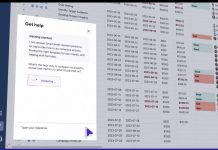By Kanika Vatsyayan
With the introduction of test automation services, the world is super excited about the impact AI could create on expanding the business bottom line. Moreover, the ever-evolving AI and ML technology have paved the way for processing much larger quantities of data uncovering an all-new perspective to the digital world.
On top of it, the concept of bringing AI into our day-to-day operations has the benefit of streamlining all the mundane activities. This can be an AI-operated drone for pizza delivery or an autonomous e-Commerce store that can help you with a guided tour of the things that you are likely to buy. In short, AI has the potential to transform our routine life and revolutionize every business process, irrespective of the industry. A similar kind of use case that you could observe with the implementation of AI technologies is the idea of simplifying software testing operations.
Yes, we are going to talk about AI testing, but before that, let us quickly jump on understanding the promising business perspective that AI could yield for us.
Either it comes to boosting efficiency with the operations or driving consistency in the business activities, AI has enabled businesses to eliminate the manual repetition on the tasks that need extensive focus and resolving complexities. From speeding of the data mining procedures to data analysis and decision making, AI processing data sets have contributed so many valuable insights to businesses. Especially when we talk about the development of software and applications, AI has made testers understand consumer behavior patterns to create solutions that are much productive.
From performance testing to extensively consuming regression tests, AI has simplified things improving the development and consumer experience to boost the public perception of technologies. For instance, let us consider the very recent example of putting AI on the test for healthcare solutions.
The technology has not only streamlined the process for diagnosing and record-keeping but has been used at a large scale for meeting the original purpose of the technology.
This includes keeping records of patients, recording family histories, identifying patterns for common diseases, and streamline care during the drastic circumstances possessed by COVID-19.
AI Impact on Software Testing
When you are a software professional who has access to a technology that can help meet functional requirements of the product through an automated framework and assistance on GUI tests using past behavioral data, imagine how convenient things get.
AI has some similar and exceptional benefits to offer to the testing industry since it can aid the development of software, applications, and websites meeting the QA goals. From seamless progression to rapid delivery, AI used in QAOps could help yield productive and more stable solutions.
This entire shift in trend has occurred due to the increased demand of consumers related to the software industry, as the only way to meet their needs is using a solution that can help yield speed and improve SDLC. Similarly, AI technology, when paired with Robotic Process Automation and automation testing solutions like Selenium, has the potential to meet the business priorities of the customers and development communities.
Though automation has been considered a necessary practice for QA these days, the use of automated solutions is still limited to less than 50 percent. However, the reality is AI and automation together have a lot of potentials to leverage the concept of Agile testing practices establishing new benchmarks of the speed and accuracy for QA.
Speeding Up the Process: Intelligent Test Maintenance and Execution with AI
Since maintenance of the applications is a cumbersome task that needs testers to run through several dynamic workflows and complex architectures, AI could help fill the gap that traditional testing practices and existing automation tools have left.
Artificial Intelligence into Testing has the potential to speed up the process of test automation with the capability to mitigate risks associated with development at the earliest. Here are the few ways in which AI could be used to yield rapidity in automation testing:
Predictive Self-healing
The application or software development process is consuming as it involves frequent changes and updates for improved UI. The situation can be major trouble for testers who need to execute tests manually or even with the help of a test automation tool. With the predictive self-healing features on AI, the already established test suites could be updated for any changes cutting the maintenance time and test procedures.
Smart Bug Hunting
The success of a development project depends heavily on the exploratory testing procedures, which need manual efforts. This usually involves interactive activities targeted to test UI and explore software to find buggy areas. However, most of these UI testing procedures need an extensive search to locate the bugs due to the dynamic nature of the projects. This is where AI could be put to use running automated ad-hoc, exploratory tests and ensure rapid feedback.
In other words, AI used to work on exploratory tests could allow checking of critical bugs in the agile process, making way for first-pass solutions.
Cloud-based Virtualization
Managing tests is another consuming aspect of testing, especially when there is a pool of mobile devices and operating systems, walking the code for every combination is difficult to work on checking for resolution, navigation, and other aspects of the software, website, or application. The complexity is even more increased when every year, a new bundle of devices is launched. However, cloud-based virtualization using AI could help simplify the task overcoming the need to test the products over varying environments and configurations.
Process Automation
Since maintaining the test is expensive and consuming, AI could help testers to skip configuring tests for every use case and make the code work according to different environments. Moreover, AI could use historical test results to meet the goals of varying environments reducing the test expenses and configure the tests accordingly.
All in all, the idea of automating the entire testing procedure is something that needs advanced maintenance and system scalability. Also, Artificial Intelligence has the potential to validate the entire front-end and back-end operations for data and code use. This would not only bring rapidity to the process but can help surely help testers to spread coverage on numerous code integrations made to the system.
Good luck!
About the Author

Kanika Vatsyayan is Vice-President Strategies at BugRaptors who oversees all the quality control and assurance strategies for client engagements. She loves to share her knowledge with others through blogging. Being a voracious blogger, she published countless informative blogs to educate audience about automation and manual testing.


































